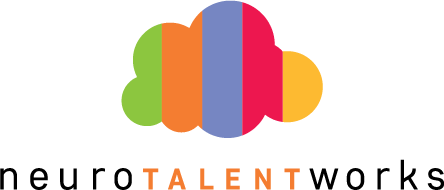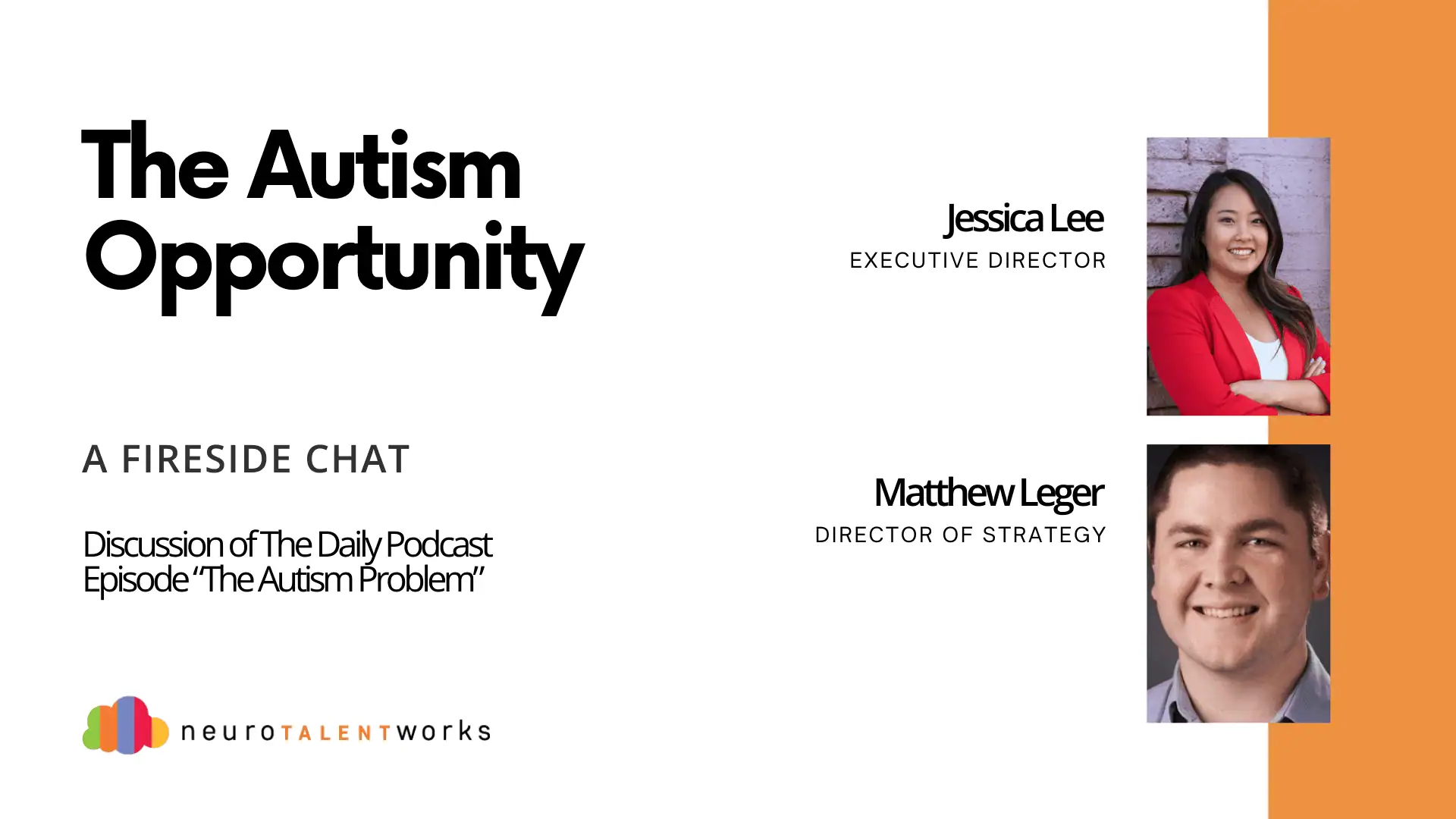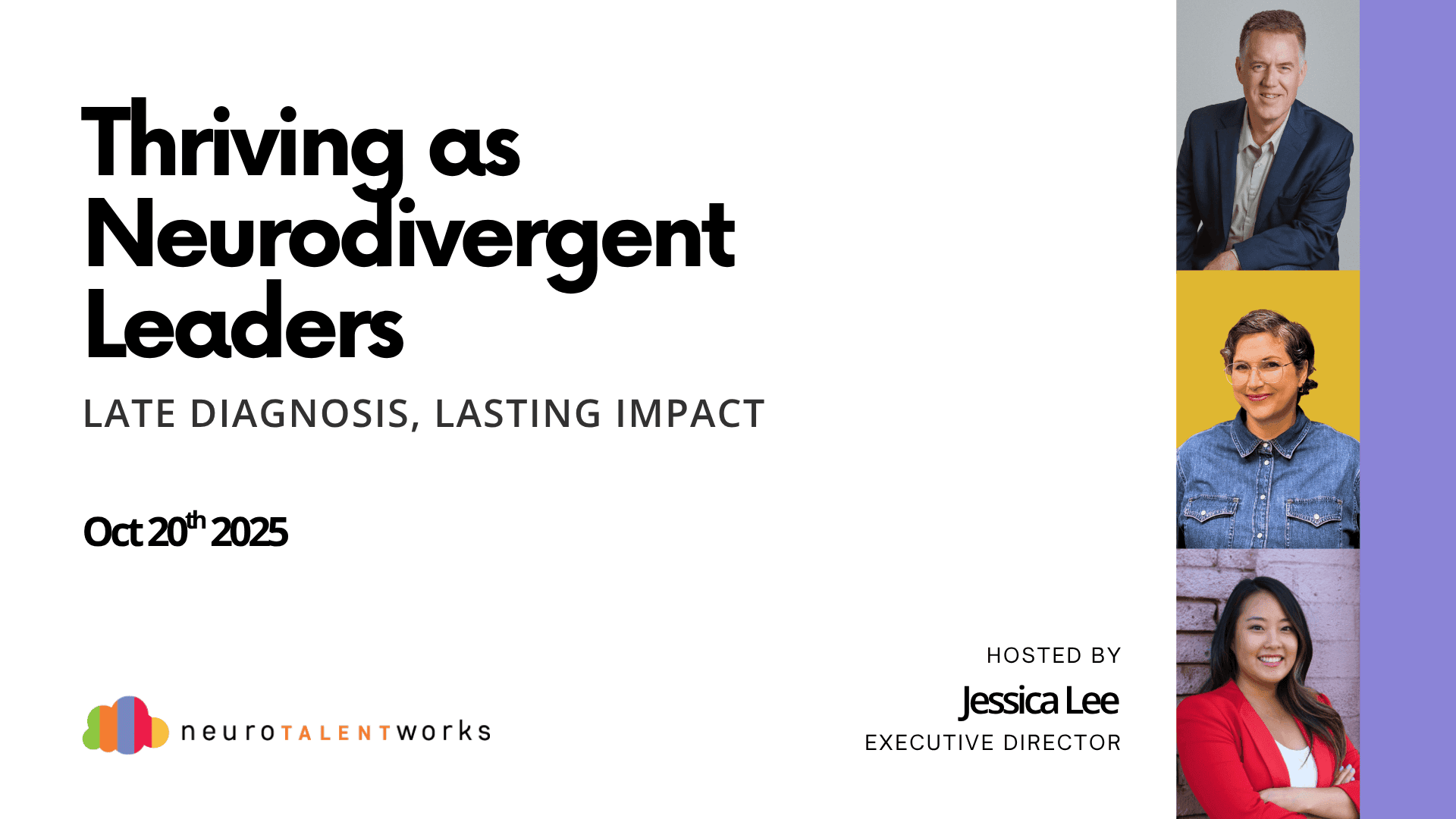As a new mom-to-be and an employee who identifies as neurodivergent, I am amazed by the parallels between how these two identities can be affirmed in the workplace. Both parenthood and neurodivergence may be associated with specific physical and mental health needs, differences in information processing, and increases in stress. I know this is the case for me! Thinking about the needs of loved ones, my prenatal care, and preparing for a new child can lead to an increased mental load. It helps to cultivate empathy for myself and others, and to embrace what I have learned from the neurodiversity movement.
Teams like my colleagues at NeuroTalent Works are striving for excellence in creating psychological safety and neurodiversity inclusion in the workplace. This helps us all, whether we are facing a season of caring for children, aging relatives, and/or our own medical and psychological needs. We are all human and a culture of neuroinclusivity maintains our dignity while helping us do our best work.
It starts with managers and coworkers being caring and interested in each other’s lives. That makes for a positive social environment and an ethos of mutual respect. Understanding where others are coming from and what temporary or chronic challenges they might face is vital to supporting people as well as encouraging them to do their best at work.


Here are some practical ways to be neuroinclusive that are top of mind for me based on my personal experience with being in a supportive workplace:
- Flexibility: When possible, encourage employees to attend medical appointments, therapy appointments, take a mental health day, and attend to other basic needs, even if it means taking time out of the work day. This is so helpful for individuals in a variety of situations, and being well taken care of can help productivity and avoid distractions from worrying about unmet needs while at work.
- Example: Set an example on your team of communicating about a need to step out for an appointment, notifying colleagues and reflecting the information on any meeting RSVPs to normalize addressing personal needs. .
- Who does this help?: Neurodivergent colleagues with a physical and/or mental health condition, parents and caregivers who need to address illness in their loved ones, and individual employees who need to take time for their own wellness.
- Direct Communication with more than one form of information processing: Clear statements on work tasks and projects is very helpful, and repeating it in more than one form of communication ensures that everyone has a chance to fully process the information.
- Example: Talk about assigning project tasks in a one-on-one or team meeting, and confirm what was said verbally in written notes or an email.
- Who does this help?: Neurodivergent colleagues who understand best through written communication, parents and other caregivers who are juggling the mental load of family needs and work tasks, and anyone who has a preferred mode of communication
- Strengths-focused Management Style: Assign tasks and encourage the development of inherent strengths in each employee. A strengths-focused approach allows for individual combinations of traits and talents to be leveraged for the overall work of a team.
- Example: Delegate tasks while keeping in mind which employees have strengths that match the task, i.e. assign report writing to a coworker with writing strengths and assign the presentation of the report to a coworker with verbal strengths
Who does this help?: Neurodivergent colleagues who excel in particular areas of interest and skills, and anyone who has particular areas of strengths.

When a diversity of minds and mindsets are embraced in the workplace, neurodiversity inclusion flourishes. As more organizations affirm the identities of their employees, they can be more supportive and flexible for all, and teams can become more innovative, empathetic, and effective. I can only speak from my experience, but I will say that there is more in common in the experiences of being a parent and being neurodivergent than I expected!
If you are ready to go further in your journey of neurodiversity inclusion for your organization, contact us at NeuroTalent Works about our strategic business partnership services including a new workshop, Understanding All Minds! Email [email protected] for more information.




